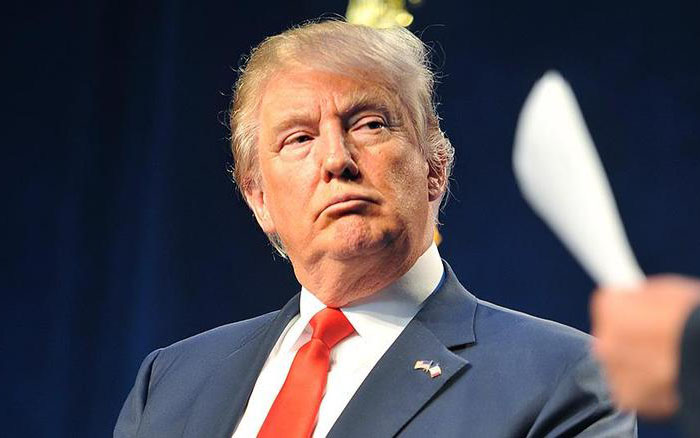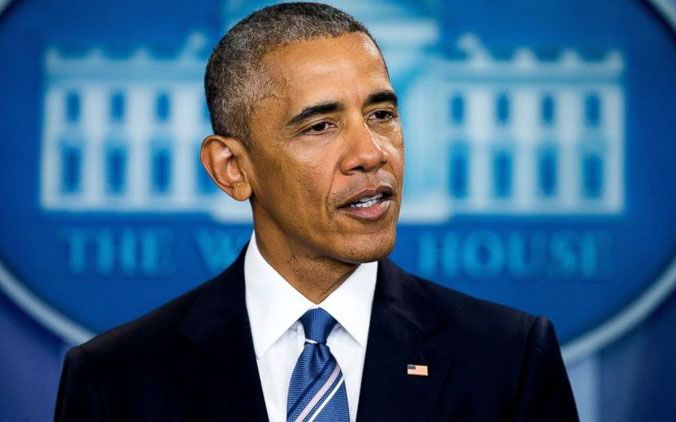Trump, US foreign policy

Reason Wafawarova on Monday
The Heritage Foundation is a rightwing organisation that provides direct policy analysis to lawmakers in the United States, and the organisation’s view of the recent Middle East Visit by Donald Trump, his debut foreign trip since taking office in January this year, must be interrogated.
James Philips, a research fellow with the organisation, wrote in advance of the trip, and it would be interesting to have a look at some of the points he raised.
He essentially sees this trip as yet another chance for the United States “to reset relations” with Middle East key allies, and to “restore confidence in American leadership” of the region. In Philips’ view the leadership role of the United States in the Middle East was all but wrecked by Barack Obama, whose trip to the Middle East “disowned” Egypt’s Hosni Mubarak and “embraced the Muslim Brotherhood”, leading “to disaster after Mubarak was overthrown”.
The other egregious crime allegedly committed by Barack Obama was to “skip Israel” when he visited the Middle East. Philips argues Obama’s “feeble and disastrous policy” towards the Middle East meant that Sunni Gulf-states (ISIS and Al-Qaeda) and Israel had to “find themselves co-operating under the table to protect their own security”.
So Obama was supposed to include Israel on his Middle East trip, to back the loathed Mubarak in Egypt, condemn the popular Muslim Brotherhood, condemn Iran and Hezbollah (Shia), and also back the Wahhabist terrorists (Al-Qaeda) and that would keep the United States foreign policy in the Middle East intact after George Bush’s sabre-rattling invasions.
Well, Obama made it all up later when he spectacularly backed the Benghazi Al-Qaeda terrorists in bringing down Muammar Gaddafi in Libya, and when he massively armed ISIS in a failed attempt to bring down the Assad government in Syria.
According to Phillips the restoration of American leadership in the Middle East means “containing Iran”, which means subduing Iran’s military and economic strength, and also to “set the stage for Arab-Israeli peace negotiations”, which means legitimising the illegal occupation of Palestinian lands, and fabricating a sense of temporary peace thereafter.
Of course, Obama was no big fan of Israeli expansionism, and that is the huge farce that Trump has to amend and fix. The Heritage Foundation advises that Trump must somehow convince Saudi Arabia, Bahrain, Qatar, Egypt and Israel that his “America First” policy “will also advance their own interests”. That is a tall order.
So we have to put up with the madness that says terrorist sponsoring Saudi Arabia will join hands with Donald Trump to end acts of international terrorism, the same way Obama armed the terrorist group ISIS to end the “terrorism” of Assad in Syria. It is the same way France, Britain and the United States provided a de facto air force to the terrorist Benghazi rebels in Libya, brutally murdering Gaddafi in the process, alongside tens of thousands of innocent civilians and children.
This was the triumvirate’s understanding of a no fly zone meant to protect Libyan civilians, presumably threatened by a sentence in a Gaddafi speech; directed at the Benghazi rebels, and conveniently interpreted to be a threat to innocent Libyan civilians.
Is it not ironic that a Libyan man gleefully offered asylum by Britain many years ago in order to legitimise the demonisation of Gaddafi went on to sire a child in Manchester; who some 22 years later would turn out to barbarically attack and kill 22 innocent revellers at a family concert in the same city? Donald Trump himself said the thrust of his Middle East trip was “to marshal a coalition of political and religious leaders against intolerance”.
This is the man who had to be stopped by the American courts when he signed an order to ban Islamic people from six countries from entering the United States, including those who happened to be United States citizens with historical links to the said countries. It is the same Trump whose idea of tolerance is to send back immigrants in the US back to wherever they came from, and to build “a very tall and beautiful wall” to stop Mexicans from entering the United States, bizarrely at a cost to be met by the Mexicans themselves.
Obviously Trump’s idea of world peace is “to mobilise states and religious establishments against the common threat posed by intolerant Islamist extremist movements”, according to Philips.
Paradoxically, the Middle East enemies of the United States are convinced that there would be eternal world peace if only America and its allies would learn to stay at home.
Saudi Arabia is not only notorious for its egregious record on violation of women’s rights, as well as enslavement and degrading of foreign nationals. The oil rich ally of the United States is the bedrock of radical Islam — Wahhabism.
It is this radicalised form of Islam that birthed the Mujahedeen and the Madrassas in Pakistan and Afghanistan at the peak of the Cold War, giving rise to characters like Osama bin Laden and other such murderous people.
The Madrassas and the Mujahedeen enjoyed massive moral and financial backing from the United States and its other Western allies, mainly because their Sunni radical ideas were then targeted against Soviet Union expansionism.
Trump overlooks the excesses of Saudi Arabia in the hope that he can forge a collective security alliance of Arab countries portrayed as threatened by Iran, Hezbollah, and by the now out of control, but formerly Western sponsored ISIS, as well as other extremist groups.
The Trump administration has said it intends to build an “Arab Nato”, and it claims the idea is to reassure Arab leaders who felt “abandoned by the Obama administration in its rush to engage Iran”.
The likely members of this “Arab Nato” are Saudi Arabia, Bahrain, Kuwait, Oman, Qatar, and the United Arab Emirates; perhaps including Egypt. The broader aim of the “Arab Nato” alliance is to lessen the headaches of Israel of course.
Rightwing politicians in the United States believe Obama dangerously apologised for US foreign policy when he visited the Middle East, and they hope the bullish style of Trump could reassert US supremacy in Middle East affairs. We are told that without US supremacy the world risks a legion of rogue states in the mould of stubborn North Korea.
Philip advises that Trump “should not talk to people over the heads of their leaders” as Obama did, when “he distanced himself from Egyptian president Hosni Mubarak”.
In other words, Trump must cover up for the sins of those leaders seen as pliant to the greater aim of US supremacy in the Middle East. The US foreign policy overrides even holiness and uprightness.
In regards to Israel, Trump essentially wanted to reassure Netanyahu that the Obama era is gone, and that Israel has full US support in its endeavours to make the Palestinians landless. So the message is covered in velvety diplomatic colours of Trump meeting up with Palestinian President Mahmoud Abbas and other ritual visits to the Western Wall in Jerusalem.
He probably wants to fuel speculation about his declared ambitions to move the United States embassy from Tel Aviv to Jerusalem.
US foreign policy in The Middle East faces three main challenges at the moment – ISIS, Iran and the Arab-Israeli never ending conflict. Both the US and Iran want ISIS annihilated, but the US does not want Iran to survive in its current form either.
One of Iran’s former presidents was once quoted as having said he wanted Israel “wiped off the map”. The rivalry and enmity between Israel and Iran is quite telling. Israel can afford to do under the table deals with the Sunnis and ISIS just to spite and undermine Iran, and Iran will do everything in its power to back Assad in Syria and Hezbollah Lebanon and Gaza in order to keep Israel in check.
Trump hopes to find common ground with untoward Middle East regimes against common enemies, even at the expense of morality, human decency and lawfulness. That is how US foreign policy works.
It is important that the United States tries to unite the three Abrahamic faiths against terrorism. These faiths are Judaism, Christianity and Islam. Sadly, Trump has no idea what the difference is between the hostile ideology of Islamist totalitarianism and the religion of Islam. It is like being convinced that a Christian named cult defines the identity of Christianity as a whole.
The fact is that there is just no moral support for US efforts in bringing down ISIS and Al-Qaeda in the Middle East right now. The generality of Middle East denizens are aware of the links between the United States and the founding and funding of these brutal groups.
Countries like Iraq and Libya had watertight regimes to thwart any minimal effort at uprising by either ISIS or Al-Qaeda, up until the United States came to the aid of these ruthless monsters in pursuit of illicit regime change agendas.
Trump cannot dream of liberating Raqqa from ISIS control without working together with the Syrian government and Russia, and he has to abandon his country’s regime change agenda in Syria if he is serious about defeating the US created ISIS in that part of the world.
If Donald Trump does not tone down on his anti-Iran rhetoric he might just succeed in perpetuating conflict in the Middle East. There is a temptation to forge an unholy alliance against Iran by reaching out to Sunni Arab leaders disillusioned by what they regard as Obama’s appeasement of Iran, and his perceived indecisiveness in Syria.
Some have even accused the US former president of weak leadership. These Sunni leaders might be harbouring thoughts of capitalising on Trump’s ill temperament and breathtaking recklessness. But aggression against Iran would not be a good idea with the way things stand in Syria, Libya and even in Iraq. There is also Hamas, Hezbollah and the Yemen Houthi rebels to contend with.
It is hard to believe Abbas will agree to drop preconditions for negotiations with extremist Israeli leader Benjamin Netanyahu, namely the halting of settlement activity and the release of Palestinian prisoners.
Many in the West believe Mahmoud Abbas is corruptible enough to be induced into dropping these preconditionalities. That remains to be seen.
- Reason Wafawarova is a political writer based in SYDNEY, Australia.






Comments